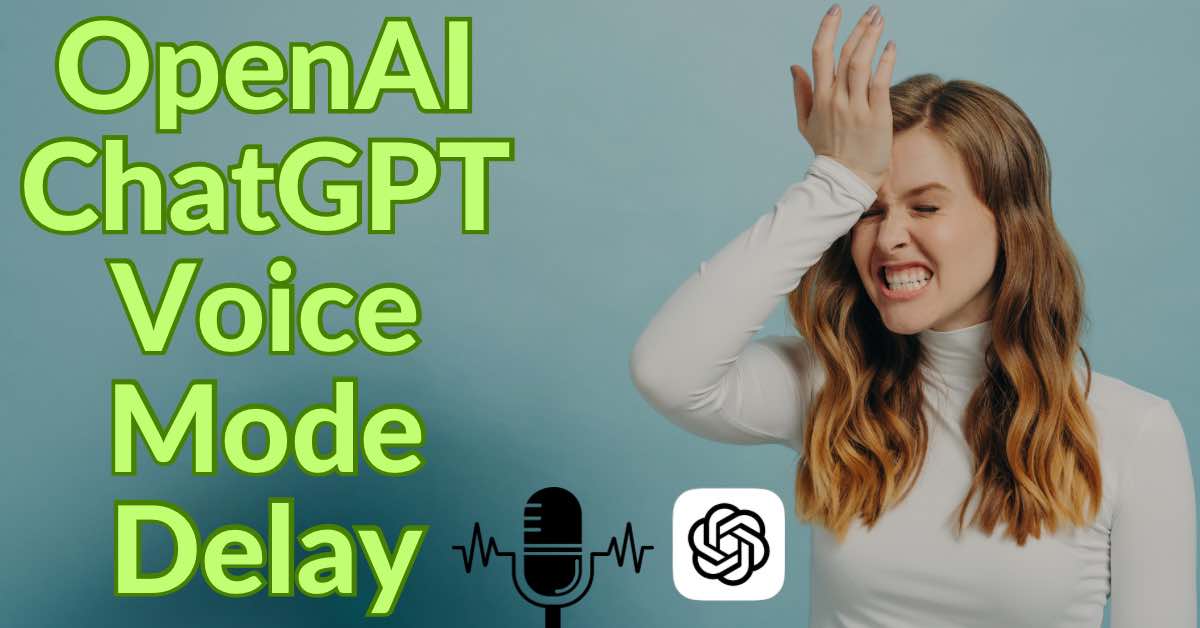OpenAI has recently announced a delay in the rollout of its highly anticipated Voice Mode for ChatGPT, originally slated for release in late June. This delay, while disappointing for many, underscores OpenAI’s commitment to ensuring the highest standards of safety, reliability, and user experience.
OpenAI ChatGPT Voice Mode Delay is due to improvements in content detection user experience, and infrastructure scaling. Initially available to a small group of users in alpha, the broader rollout is expected in the fall. The new mode enhances emotional and non-verbal response capabilities.
Key-Points
Why OpenAI ChatGPT Voice Mode Delay?
OpenAI ChatGPT Voice Mode Delay is rooted in its dedication to refining the technology before it reaches a broader audience. According to their recent Twitter update, several key factors have contributed to the delay:
Content Detection and Refusal
Enhancing the model’s ability to detect and refuse inappropriate content is a primary focus. This ensures a safer user experience.
User Experience Improvements
Continuous improvements are being made to enhance the overall user interaction with the Voice Mode.
Infrastructure Scaling
Preparing the infrastructure to support millions of users while maintaining real-time response capabilities is crucial for a seamless experience.
Key Features of OpenAI’s Voice Mode

Despite the delay, OpenAI remains excited about the potential of its advanced Voice Mode. Here are some of the standout features:
Emotional and Non-Verbal Cues
The Voice Mode can understand and respond with emotions and non-verbal cues, making interactions more natural and human-like.
Real-Time Conversations
The technology aims to enable real-time, fluid conversations with AI, a significant step forward in AI-human interaction.
Iterative Deployment
OpenAI plans to start with a small alpha group to gather feedback and iterate based on user experiences.
Addressing Common Issues
ChatGPT Voice Assistant Issues
Users have reported various issues with ChatGPT’s voice assistant in the past, including:
- Response Delays: Instances of delayed responses have been noted, particularly during high-traffic periods.
- Accuracy: While generally high, there have been occasional issues with the accuracy of responses, particularly in complex conversational contexts.
- User Interface: Some users have found the interface challenging to navigate, especially when accessing voice mode features.
GPT-4o Voice Mode
The upcoming GPT-4o voice mode promises to address many of these issues:
- Improved Response Times: By optimizing server infrastructure, response times are expected to be significantly reduced.
- Enhanced Accuracy: Continuous training and user feedback are being used to improve the accuracy and relevance of responses.
- User-Friendly Interface: Efforts are being made to create a more intuitive and user-friendly interface, simplifying access to voice mode features.
What’s Next?
OpenAI is planning a phased rollout of the new Voice Mode. Initially, a small group of ChatGPT Plus users will gain access to the alpha version, with a broader release expected in the fall. This phased approach allows OpenAI to gather valuable feedback and make necessary adjustments before a full-scale launch.
Additionally, OpenAI is working on introducing new video and screen-sharing capabilities, further enhancing the interactivity and usability of their platform.
Conclusion
While the delay in the rollout of OpenAI’s Voice Mode may be disappointing, it highlights the company’s commitment to delivering a safe, reliable, and high-quality user experience. As improvements continue to be made, users can look forward to a more advanced and intuitive AI interaction shortly.
Want to learn more in-depth, check out the related resource;
FAQs
Why is OpenAI delaying the Voice Mode rollout?
OpenAI is delaying the Voice Mode rollout to improve content detection, enhance user experience, and scale their infrastructure to support millions of users.
When will OpenAI’s Voice Mode be available?
The alpha version will be available to a small group of ChatGPT Plus users starting in late July, with a broader rollout expected in the fall.
What improvements are being made to OpenAI’s Voice Mode?
Improvements include better content detection, enhanced user experience, and optimized infrastructure for real-time responses.
Who can access the alpha version of Voice Mode?
A small group of ChatGPT Plus users will initially have access to the alpha version.
What new features does OpenAI’s Voice Mode offer?
The new Voice Mode features emotional and non-verbal cues, enabling more natural and real-time conversations with AI.
Will the delay affect other OpenAI features?
OpenAI is also working on rolling out new video and screen-sharing capabilities, which are being developed alongside the Voice Mode improvements.
How will OpenAI gather feedback on the new Voice Mode?
OpenAI will gather feedback from the small group of alpha users and make iterative improvements based on their experiences.
What are common issues with ChatGPT’s voice assistant?
Common issues include response delays, accuracy problems, and a challenging user interface.
How does GPT-4o address these issues?
GPT-4o aims to improve response times, enhance accuracy, and provide a more user-friendly interface.
